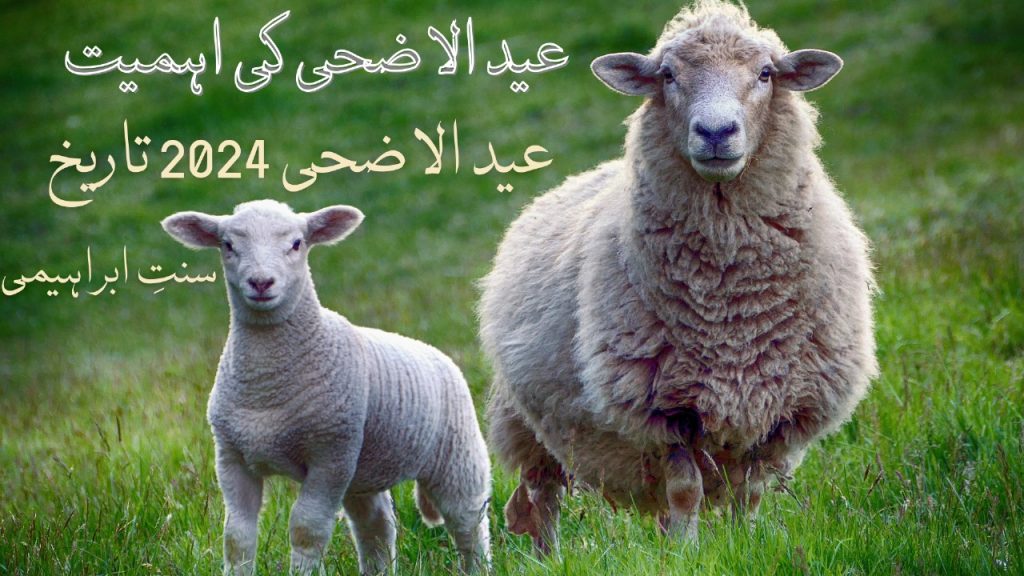Eid Ul Adha 2024 is remaining time is:
Eid-ul-Adha, also known as the greater Eid, comes after the annual Hajj pilgrimage and involves a special ritual called Qurbani, or sacrifice. It falls on the tenth day of the twelfth month in the Islamic Lunar Calendar, Dhu-al-Hijjah, and the exact date depends on the sighting of the moon after the completion of Hajj.
Eid-ul-Adha commemorates Prophet Ibrahim’s devotion to Allah and his willingness to sacrifice his son, Ismail. However, at the moment of sacrifice, Allah replaced Ismail with a ram, sparing his life. This event tested Prophet Ibrahim’s unquestioning obedience to Allah’s command. In simple terms, Eid-ul-Adha is often referred to as the festival of sacrifice.
Qurbani
Qurbani, or the act of sacrifice, is a significant part of Eid-ul-Adha celebrations, which can vary in duration depending on the country, lasting from two to four days. The Qurbani ritual takes place after the Eid Salaah, or Eid Prayers, conducted collectively at the nearest mosque on the morning of Eid. During Qurbani, you slaughter animals like sheep, lamb, goat, cow, bull, or camel to commemorate Prophet Ibrahim’s sacrifice for Allah. This act, also known as Udhiya, spans three days, from the 10th to the 12th of Dhu-al-Hijjah. Different animals have varying Qurbani shares, with sheep, lamb, or goat representing one share, and bull, cow, or camel comprising seven shares per animal. To be eligible for sacrifice, the animal must be in good health and meet specific age criteria. Moreover the slaughtering process must follows Islamic guidelines for it to be considered “halal.”
The animal offerings are among the rites decreed by GOD for your own good. You shall mention God’s name on them while they are standing in line. Once they are offered for sacrifice, you shall eat therefrom and feed the poor and the needy. This is why we subdued them for you, that you may show your appreciation.” – Qu’ran 22:36
Qurbani meat distribution rules
A fundamental rule in the distribution of Qurbani meat is the division into three equal portions. It’s noteworthy that the act of donating Qurbani meat is not restricted by religious affiliation; individuals are encouraged to extend the spirit of joy and happiness to people of all faiths. This practice aligns with Allah’s (SWT) directive to share the blessings of Qurbani and spread goodwill among diverse communities.
One portion is for the Qurbani performer
It is a requirement for this person to retain one-third of the meat for personal use. The performer can consume the meat, share it as a gift with friends and family, or donate it.
One more for their family and friends
The Qurbani performer allocates one-third of the meat from the Qurbani animal to their family and friends. Moreover, this practice serves as a means of extending the blessings of the sacrifice to loved ones. Additionally, you can prepare and share the meat in meals with family and friends. Alternatively, you can also gift it to them for their own use and preferences.
Last for those who are poor and needy
Designate the final one-third of the meat from the Qurbani animal for the poor and needy. The objective is to ensure that individuals facing financial challenges within the community also partake in the festival’s blessings. You distribute this portion of meat to the less fortunate. In certain instances, you channel the meat through charitable organizations, which then distribute it to those in need.
Significance of qurbani in Islam
The animal sacrifice is delineated in the Quran as follows: “It is not their meat nor their blood that reaches Allah: it is your piety that reaches Him” (22:37).
This hadith further elucidates the significance of qurbani:
The Messenger of Allah (ﷺ) said, “There is nothing dearer to Allah during the days of Qurbani than the sacrificing of animals.
Also Read more about Eid ul Fitr.
FAQ’s
Q: Is it permissible to share Qurbani meat with individuals who are not followers of Islam?
Yes, non-Muslims can receive Qurbani meat. They can be your friend, neighbor or a needy person.
Q: Which animals are permissible for Qurbani?
Following animals are permissible for Qurbani.
Cow
The Goat
Camel
Sheep


